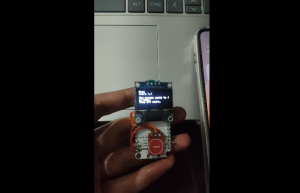A British army major threw a laptop, which may have contained photographs of Iraqi bodies killed by the British in disputed circumstances, into the sea according to a public inquiry heard on Wednesday.
According to Reuters, appearing as a witness at the Al-Sweady inquiry, James Rand was questioned about allegations that British troops executed and tortured Iraqis in the aftermath of a battle near the town of Majar al-Kabir in southern Iraq on May 14, 2004.
If the allegations made by local Iraqis and denied by the British soldiers are proved by the long-running inquiry, it will be seen as some of the worst atrocities of the Iraq war. Reuters reported the British said Rands, a captain at the time, was an intelligence officer based at Camp Abu Naji, a military base where 20 Iraqi bodies were taken after a fierce gunfight.
He's accused of taking photographs of the dead bodies and making copies before before disposing of the originals into the ferry. The copies are now one of the key items of the inquiry, Reuters reported.
"I don't think it would ever have occurred to me not to take those photographs," Rand said when asked on why he took the pictures.
The central issues in the inquiry are the state of the bodies and the reason why they were at Camp Abu Naji. While Iraqi witnesses claim some of the bodies were taken alive and later executed at the camp, and some of the bodies were mutilated, the British soldiers deny the accusations.
According to Reuters, the British said that all of the dead were killed on the battlefield and later transported to the camp for the purpose of identification as there was a suspicion that an insurgent leader whom they had been trying to arrest was among them.
The British army's normal practice is to leave enemy dead on the battlefield. The controversial decision of transporting the Iraqi bodies to Camp Abu Naji is one of the prominent issues being investigated by the inquiry.
Rands said he decided to dispose the laptop when the computer developed a problem and he became uneasy about sensitive material, such as the photographs, being on his personal laptop, Reuters reported.
"I disposed of it by throwing it off a ferry between England and Germany," he said in his witness statement, adding that this happened in 2006 and he had been confident copies existed.
Sixty Iraqi witnesses have already presented evidence to the inquiry and some 200 British witnesses will be appearing in hearings expected to last until next spring. Reuters reported that a final report by the chairman, retired judge Thayne Forbes, is not expected until late 2014.
© 2025 HNGN, All rights reserved. Do not reproduce without permission.








